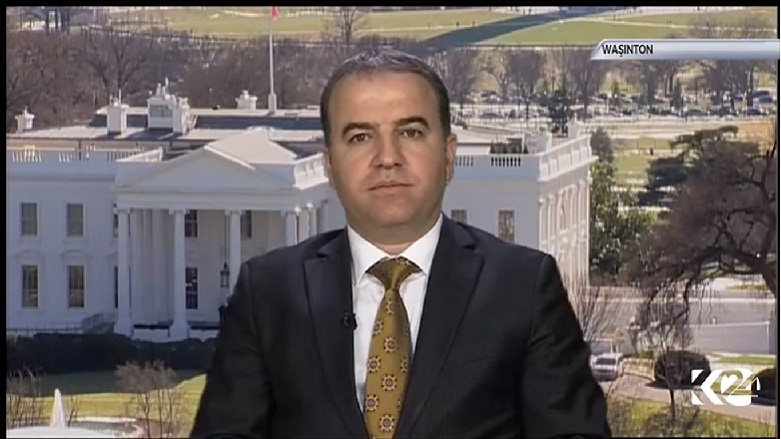‘US is aware of Kurdish sacrifices’

ERBIL, Kurdistan Region (K24) – A Kurdish official said on Tuesday that the US is aware of the economic crisis in the Kurdistan Region, and their sacrifices in the war against the Islamic State (IS).
Head of the Kurdistan Democratic Party (KDP) Foreign Relations Office Hemin Hawrami told K24 that a KDP delegation visited Washington on Feb. 1 meeting two US congressmen. “The US is aware of the Kurdish sacrifices in the fight against Da’esh (IS) and the current economic crisis,” he said.
Hawrami noted that the delegation’s main agenda is to meet some congressmen and US officials, participate in the National Prayer Breakfast 2016 and Think-Tank conferences, and attend a seminar at the Johns Hopkins University.
He mentioned that the KDP’s visit to Washington was to emphasize the demands of the KRG delegation’s recent visit. Additionally, Hawrami hopes the delegation can lobby for more military, humanitarian and financial support to resolve the Region’s current issues.
“We also want to discuss the future policy towards the Kurdistan Region with the US presidential candidates,” Hawrami stated.
He emphasized four main reasons that have caused the current economic crisis. “A dramatic decrease in international oil prices, IS war and security threats in the Region, the influx of 1.8 million refugees and Internally Displaced Persons (IDPs), and the budget cut from Baghdad,” he stated.
Furthermore, he noted that attempts have been made to receive financial help from the Pentagon, US Department of Defense and US Central Command. These funds will be used to provide basic needs for refugees and IDPs.
Regarding Kurdish participation in Geneva III, Hawrami stated that the KDP is monitoring the role of Kurds in Syria and Rojava (Syrian Kurdistan). He touched upon the role of President Masoud Barzani in supervising Rojava parties to reach a unified agreement—referring to meetings held in Erbil and Duhok.
“We look forward to seeing Kurdish rights gained from the Geneva III talks, especially now that Kurds are part of the Syrian opposition. We hope they have their rights constitutionally recognized and obtain an autonomous region in Syria,” Hawrami explained.
Additionally, he hoped that the pro-Kurdish Democratic Union Party (PYD), one of the main parties in Rojava, will join the Geneva III talks.
Hawrami called on the Kurdish parties in Syria to follow Rojava’s agenda, rather than those of Syria, Iran, Turkey and the US. “Kurds should get united and work on their identity in the country rather than being part of any other parties or conflicts.”
Finally, he said the Kurdish referendum is a topic discussed regularly, and agrees that it should be done through peaceful means. “President Barzani’s statement emphasized the Kurdish right to self-determination, and for Kurds to be able to decide on their own future,” he concluded.
Reporting by Mewan Dolamari
Editing by Karzan Sulaivany
